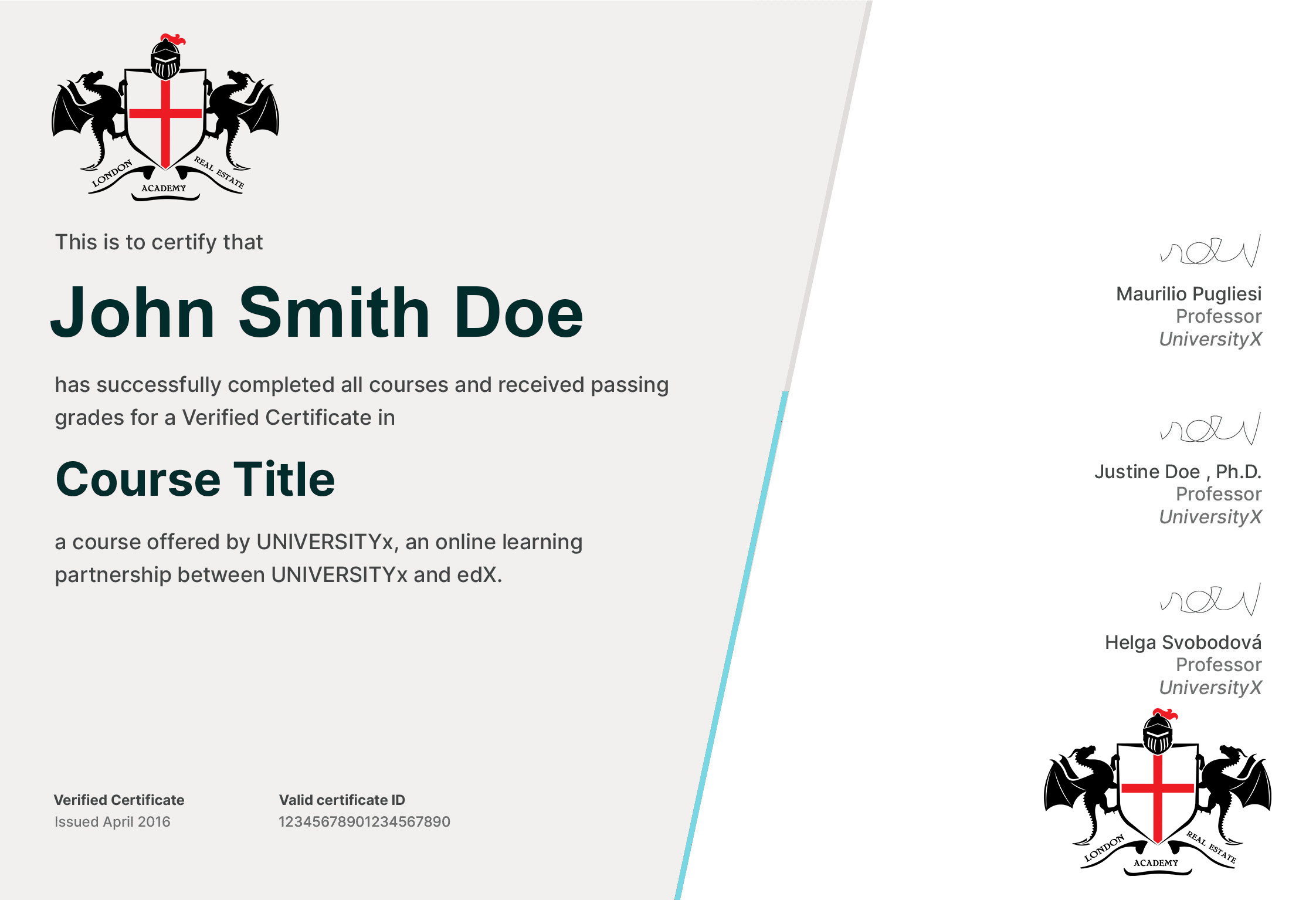Advanced Professional Certificate in Innovation and Entrepreneurship
About the course
The course covers effective clinical supervision concepts and provides insight into a practical method for improving supervisory relationships with those being supervised. Learners will gain the ability to comprehend various models and frameworks, as well as best practices for enhancing clinical supervision skills.Upon successfully completing the course, participants will acquire knowledge in the following areas:
1. The significance of clinical supervision in health and social care.
2. The extent of clinical supervision.
3. Fundamental principles of clinical supervision and the essential skills and qualities of supervisors.
4. Models of clinical supervision and the concept of Clinical Governance.
Course details
Innovation and entrepreneurship are two critical drivers of economic growth, job creation, and social progress in today's global economy. The course on Innovation and Entrepreneurship aims to provide students with a comprehensive understanding of the principles, processes, and practices of innovation and entrepreneurship and how they can be applied to create value and solve complex problems in various contexts.After the successful completion of this course, you will understand the following;
Nature and Importance of Entrepreneurship
- Define entrepreneurship and distinguish between entrepreneurship and intrapreneurship.
- Analyze the nature and development of entrepreneurship and its role in economic development.
- Evaluate the entrepreneurial decision process, including the desirability of new venture formation and the factors influencing entrepreneurial decision-making.
- Identify different types of start-ups and describe the entrepreneurial process involved in starting and managing a new venture.
- Assess the skills required by entrepreneurs, including managerial and entrepreneurial decision-making and the ethics and social responsibility of entrepreneurs.
- Discuss the future of entrepreneurship and recent trends in intrapreneurship, including the role of government as an innovator and the causes of the recent interest in intrapreneurship.
INTERNATIONAL ENTREPRENEURIAL OPPORTUNITIES.
- Assess the opportunities and challenges associated with international entrepreneurship, including the importance of international business to firms and the differences between international and domestic entrepreneurship.
- Evaluate the process of entrepreneurial entry into international business, including different market entry methods and strategies for overcoming barriers to international trade, such as trade blocks and free trade areas.
- Analyze the role of entrepreneurs in generating new ideas and the methods used to generate and develop these ideas, such as creative problem-solving and other ideation techniques.
- Compare and contrast different sources of new ideas for entrepreneurs, including internal and external sources, and evaluate the benefits and drawbacks of each.
- Evaluate the effectiveness of different entrepreneurial strategies for overcoming trade barriers and expanding into international markets.
- Critically analyze the role of innovation in international entrepreneurship and the importance of adapting to local market conditions and cultural differences when developing and implementing international business strategies.
CREATIVITY AND THE BUSINESS IDEA
- Analyze the product planning and development process, including the criteria for assessing new business opportunities and establishing evaluation criteria.
- Evaluate the role of e-commerce in business start-up and growth, including the benefits and challenges of using the internet to start and grow a company.
- Assess the process of starting an e-commerce company, including website development, and evaluate the strategies used by entrepreneurial companies to succeed in e-commerce.
- Examine the importance of endorsement deals for entrepreneurial companies and identify three best practices for securing and executing successful endorsement deals.
- Evaluate the points to be considered while doing e-commerce, including the promotion of the website in all marketing materials and the role of the product life cycle in developing and marketing e-commerce products.
- Critically analyze the challenges and opportunities associated with doing e-commerce as an entrepreneurial company and identify the strategies and practices that can be used to overcome these challenges and capitalize on these opportunities.
CREATING AND STARTING THE VENTURE
- Analyze the role of planning as part of the business operation, including the purpose of a business plan and who should write it.
- Evaluate the scope and value of the business plan and identify the key stakeholders who read and evaluate it.
- Examine the information needs for a business plan and the use of the internet as a resource tool to support the planning process.
- Assess the process of using and implementing the business plan, including how to measure progress and why some business plans fail.
- Evaluate the elements of a marketing plan, including marketing research, and assess the benefits of using marketing research in the planning process.
- Critically analyze the marketing research process and identify the strategies and practices that can be used to develop effective marketing plans for entrepreneurial companies.
Innovation Management
- Define the basic concepts and definitions related to innovation, such as creativity, invention, and diffusion, and differentiate between them.
- Evaluate different methods for measuring innovation, including input and output metrics, and explain their strengths and limitations.
- Describe the innovation process and its key stages, including idea generation, screening, testing, implementation, and diffusion.
- Analyze the role of knowledge in innovation, including the importance of tacit and explicit knowledge, and explain how knowledge management can support innovation.
- Identify different types of innovation, such as incremental, radical, and disruptive, and provide examples of each.
- Describe the characteristics of innovation, such as complexity, uncertainty, and risk, and explain how they influence the innovation process.
- Analyze the principles of technological innovation management, including technology scouting, road mapping, and open innovation, and explain how they can be applied in a business context.
- Evaluate strategies for enhancing a company's capacity for innovation, such as creating a culture of innovation, investing in R&D, and collaborating with external partners.
Accreditation
All of our courses are accredited by the relevant partners and awarding bodies. Please refer to our information in about us for more details.Entry requirement
Entry requirements for this course are flexible, with no strict prerequisites. Having work experience can provide a valuable perspective and deeper comprehension of the course content.The certificate program aims to enrich the learner's understanding of the field. It caters to individuals interested in gaining knowledge and staying current with the latest developments in their respective areas of interest. This certificate is particularly well-suited for the following audiences:
1. CEOs, Directors, Managers, and Supervisors
2. Hospital Managers
3. Clinical Supervisors
4. Health Supervisors
5. Medical Practitioners
6. Professionals in Health Management roles
7. Those involved in Health Regulatory positions
Sample Certificate

Boost your career and your talents
With a validated certificate that demonstrates your learning, wow your employer.
Take up a challenge
All of us occasionally need an additional push. You stay motivated by working for a credential.
Let the world know about it
Using the special URL we give you, you may safely distribute your validated certificate to others.
Testimonials
Real stories. Real impact.
Read how our learners have gained new skills and achieved real growth and success.
Jessica M.
Enrolling in these short courses was a game-changer for my career. The knowledge I gained was invaluable, and it significantly enhanced my skill set.
Alex K.
I highly recommend these professional short courses. The content is top-notch, and the practical insights have been instrumental in my professional growth.
Emily P.
These short courses exceeded my expectations. The instructors are experts in their fields, and the hands-on approach to learning made a real difference.

















